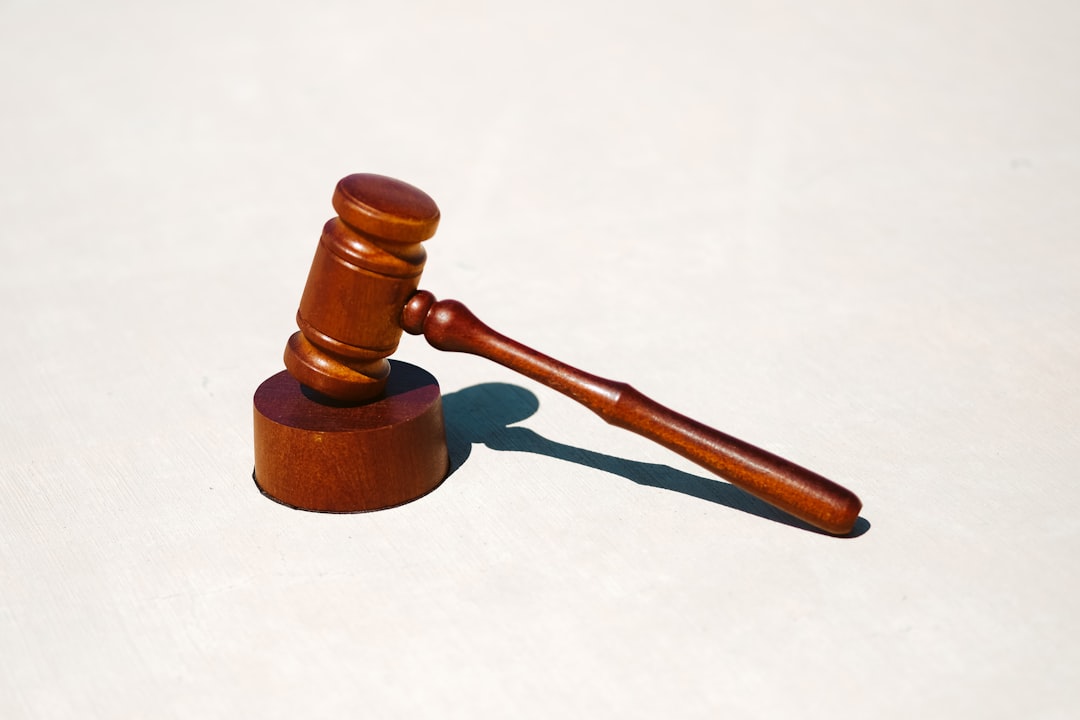In Maryland, robust state and federal regulations protect consumers from abusive debt collection practices, overseen by the Attorney General's Office. Key protections include strict communication guidelines, limitations on asset seizures, and debt verification before legal action. When facing threats from a debt collector, consulting with specialized debt collector lawyers is essential to navigate complex laws, safeguard rights, and ensure lawful, ethical communication. These professionals educate debtors and creditors about their rights, protect against aggressive tactics, negotiate settlements, and take legal action against wrongful practices. Understanding your rights under the FDCPA and gathering relevant documentation are crucial initial steps before challenging unwarranted threats from collectors in Maryland, with debt collector lawyers providing strategic guidance throughout.
In Maryland, understanding debt collection laws is crucial for consumers facing legal action threats. This guide explores when such threats are unwarranted and highlights the role of specialized debt collector lawyers in protecting your rights. We delve into how to navigate the legal process after a threatening notice and emphasize the importance of knowing your protections under Maryland law. Armed with this knowledge, folks can effectively defend against potential harassment from debt collectors.
Understanding Maryland's Debt Collection Laws

In Maryland, debt collection practices are governed by both state and federal laws, designed to protect consumers from aggressive or unfair tactics. The Maryland Attorney General’s Office plays a crucial role in enforcing these regulations, ensuring that debt collectors adhere to ethical standards. Key aspects of Maryland’s debt collection laws include strict rules regarding the timing and content of collection communications, limitations on certain practices like seizing assets without proper court orders, and requirements for collectors to verify the validity of debts before pursuing legal action.
If you’re facing threats of legal action from a debt collector in Maryland, it’s imperative to consult with experienced debt collector lawyers in the state. These professionals can navigate the intricate web of Maryland’s debt collection laws to protect your rights and help resolve the situation amicably or through appropriate legal channels. Understanding these protections is crucial for anyone dealing with debt collectors, ensuring that your rights as a consumer are upheld throughout the process.
When Legal Action Threats Are Unwarranted

When debt collectors in Maryland resort to legal action threats, it’s crucial to understand that such actions should be warranted and based on solid grounds. Unwarranted legal threats can be a tactic used by unscrupulous collectors to intimidate or coerce individuals into making payments without proper justification. In Maryland, debt collector lawyers must adhere to strict regulations and ethical standards set forth by the state.
If you feel that a debt collection agency’s legal action threats are unfounded or excessive, it’s important to consult with a qualified Maryland debt collector lawyer. They can help navigate the complexities of debt collection laws, protect your rights, and ensure that any communication from the collectors is both lawful and ethical.
The Role of Debt Collector Lawyers in Maryland

In Maryland, debt collector lawyers play a pivotal role in ensuring fair and legal debt collection practices. These legal professionals specialize in navigating complex regulations surrounding consumer rights and debt recovery, providing critical guidance to both debtors and creditors alike. They help protect individuals from aggressive or unlawful debt collection tactics by explaining rights and responsibilities under Maryland law.
Debt collector lawyers in Maryland assist clients in understanding their options when facing financial difficulties. They can negotiate with collectors on behalf of clients, advocate for fair settlement terms, and take legal action if necessary to stop harassment or wrongful practices. Their expertise enables them to offer strategic advice, ensuring that debt collection activities remain within legal boundaries, thereby fostering a more transparent and just debt recovery process.
Protecting Your Rights Against Harassment

When faced with threats of legal action from a debt collector in Maryland, protecting your rights is paramount. Debt collectors are regulated by federal and state laws designed to safeguard consumers from harassment and unfair practices. Understanding these laws can empower you to stand up for yourself and assert your rights.
In Maryland, debt collection agencies must adhere to the Fair Debt Collection Practices Act (FDCPA), which prohibits abusive, false, or deceptive practices. This includes threatening legal action without intent to follow through, using obscene language, or harrasing individuals. If a debt collector violates these rules, you have the right to file a complaint with the Consumer Financial Protection Bureau (CFPB) and seek compensation through debt collector lawyers in Maryland.
Navigating the Legal Process After a Threat

Navigating the legal process after receiving a threat from a debt collector in Maryland can be daunting, but understanding your rights is crucial. The first step is to gather all relevant information and documentation related to the debt and the communication with the collector. This includes keeping records of any conversations, emails, or letters exchanged. It’s important to consult with experienced debt collector lawyers in Maryland who can guide you through this process. They will help assess if the debt collector has violated any legal boundaries or consumer protection laws, ensuring your rights are protected.
If you believe the threat is unjustified or intimidates you into making payments you don’t owe, you have options. Debt collectors must adhere to specific rules and regulations when pursuing payment, and any abusive or threatening behavior can be challenged. Debt collector lawyers in Maryland can assist with sending cease-and-desist letters, negotiating with the creditors on your behalf, or even filing legal action if necessary. This proactive approach can help resolve the issue swiftly and protect you from further harassment.






